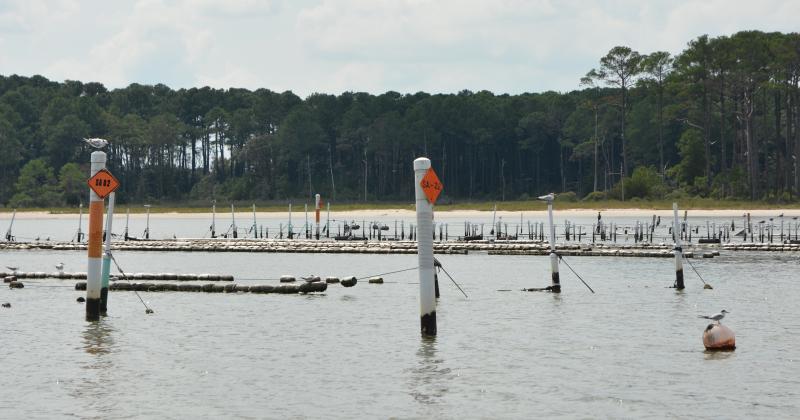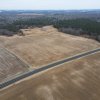DNREC proposes changes to aquaculture program regulations
The Division of Fish and Wildlife will host a public hearing Wednesday, Sept. 27, on proposed changes to the regulations governing the state’s shellfish aquaculture program.
A public notice announcing the hearing was issued Sept. 7. According to a synopsis of the proposed changes found in the Sept. 1 issue of the Delaware Register of Regulations, the state regulations overseeing the program were established in advance of the program, but were needed to establish the legal framework for the leasing of state-owned subaqueous lands for aquaculture businesses.
“The proposed amendments will update the regulation to incorporate current aquaculture practices, simplify compliance with the regulation for Inland Bays shellfish growers, and increase the efficiency of DNREC's administrative oversight of shellfish aquaculture leasing,” reads the notice.
There are changes proposed for the coordinates of the shellfish aquaculture development areas and how those areas are marked in Little Assawoman Bay. However, said Michael Globetti, Delaware Department of Natural Resources and Environmental Control spokesperson, these changes are already part of code and are in practice now because of a bill from 2017 that made the changes before the first lease was signed. This is the first proposed amendment since the regulation was initially passed, and DNREC wants to make the regulation consistent with code, said Globetti.
Some of the changes come from ongoing discussions with aquaculturists. For example, one change would allow aquaculturists to leave semi-permanent equipment – poles, cabling, anchors – for up to six months without being used.
Globetti said the lessees invest time and resources in making the lines or poles or the cabling secure, and if use will be resumed in a short period of time, aquaculturists reasoned the effort and resources it would take to remove and replace would be onerous. DNREC agreed and suggested a six-month time limit without live shellfish attached to help ensure the gear is maintained, Globetti said.
The regulations currently say it is unlawful to produce or culture bivalve species other than the eastern oyster in the bays and their tributaries. However, a change has been proposed that would keep that rule in place, unless a person gets written permission from the director of Fish and Wildlife.
Globetti said there have been questions and suggestions from the lessees about other species of shellfish that might be raised in the Inland Bays, but no specific plans for cultivation of other species have been proposed or considered at this time.
There are a couple of suggested changes that would make it against the law to erect shellfish gear outside a land lease boundary or to conduct shellfish-gardening activities without written permission from the program. Globetti said Fish and Wildlife police recommended the former be added to allow clear direction in the case that shellfish aquaculture gear is erected outside of an approved lease area. The latter was suggested, he said, as a safety measure for humans, the shellfish aquaculture industry and natural biota.
One proposed change removes the ability to appeal the denial of a lease to an applicant. This is consistent with all of the other permits signed by the DNREC secretary, said Globetti. There have not been any leases denied since leasing in the Inland Bays started, he said.
As part of the proposed changes, as of Jan. 1, 2016, agencies submitting proposed new or amended regulations that affect small businesses or individuals are required to submit a Regulatory Flexibility Analysis and a Regulatory Impact Statement. Among other things, the document estimates the cost to the people who are affected by the regulation changes.
Fish and Wildlife’s John Clark filled out the document and said no additional costs are expected. The new requirement of the use of cultivation bags will require additional recordkeeping, but this is not seen as a burden, he said in the document.
Meeting information
The virtual public hearing will be held at 6 p.m., Wednesday, Sept. 27. The web link to the virtual hearing can be accessed at de.gov/dnrechearings. Those wishing to offer verbal comments during the hearing must preregister no later than noon the day of the hearing at de.gov/dnreccomments or by telephone at 302-739-9295.
DNREC will accept public comment on the proposed changes through the close of business Thursday, Oct. 12. Comments will be accepted in written form via email to DNRECHearingComments@delaware.gov or by U.S. mail to: Theresa Newman, Hearing Officer, DNREC – Office of the Secretary, 89 Kings Hwy., Dover, DE 19901.
Chris Flood has been working for the Cape Gazette since early 2014. He currently covers Rehoboth Beach and Henlopen Acres, but has also covered Dewey Beach and the state government. He covers environmental stories, business stories and random stories on subjects he finds interesting, and he also writes a column called Choppin’ Wood that runs every other week. He’s a graduate of the University of Maine and the Landing School of Boat Building & Design.






















































